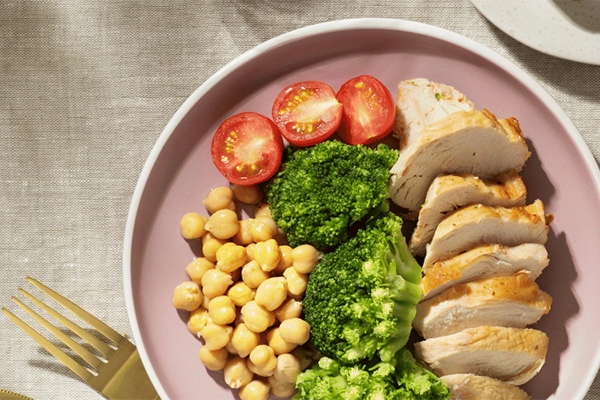Topics
Dietary fats often get a bad rap in the world of ‘healthy eating’. There are too many myths about the pros and cons of consuming dietary fats on the Internet.
Does eating ‘too much fat’ truly cause ‘high cholesterol’? Will it hinder our healthy eating and weight goals? Do we need fats in our diet?
What are dietary fats?
Dietary fats are the source of fatty acids that are important for optimal functioning of our body.
Along with the other two major macronutrients – carbohydrates and proteins – fats are a source of energy in our diet. One gram of fat provides 9 kcal of energy whereas one gram of carbohydrates provides 4 kcal of energy. One gram of protein also provides 4 kcal of energy.
Dietary fats are also essential in protecting our organs, insulation, inflammation, and blood clotting. They are also required for the transportation of fat-soluble vitamins such as vitamin A, D, E and K.
However, not all dietary fats are the same. Some types may increase the risk of heart disease, but some are extremely beneficial to us.
‘Good’ dietary fats contains both polyunsaturated and monounsaturated fats. ‘Bad’ dietary fats include trans fats and some saturated fats.
What are ‘bad’ dietary fats?
Trans fats
We should avoid trans fats as much as we can! Trans fatty acids (TFA) raise LDL ‘bad’ cholesterol and reduce HDL ‘good’ cholesterol levels.
Studies show a diet high in trans fat can significantly increase the risk of type 2 diabetes mellitus, heart disease, and stroke.
Trans fats are artificially made and are found in processed food products with the label ‘partially hydrogenated oils’, such as:
- Chocolate
- Cake
- Margarine and shortening
- Burgers
- French fries
- Pastries, puffs, pies
- Ice cream
We need to do our best to limit the consumption of processed food products that contain trans fat.
Saturated fats
Saturated fats mainly come from animal fats, such as:
- Fatty portions of meat like lamb, beef, pork
- High-fat dairy (whipped cream, ice cream, whole milk, butter)
- Skin on poultry (chicken and duck)
- Palm oil, cocoa butter, coconut oil
- Lard, ghee
Consuming too much food with saturated fats potentially increases LDL ‘bad’ cholesterol levels. It is good to control our saturated fats intake.
What are ‘good’ dietary fats?
Omega-3,6,9 aka ‘good’ fats
These 3 are considered polyunsaturated fatty acids (PUFA), which are ‘good’ fats. Since our bodies cannot make these, they are considered ‘essential fats’.
- Omega-3
- There are three types of omega-3 fatty acids: eicosapentaenoic acid (EPA), docosahexaenoic acid (DHA), and alpha-linolenic acid (ALA).
- Health authorities recommend eating 2 portions of fish or fish oil every week as they are rich in omega-3 fatty acids.
- They keep our hearts healthy, potentially prevent anxiety, depression, and Parkinson’s disease. They also reduce risk of fatty liver and inflammation.
- Sources: mackerel, salmon, cod liver oil, herring, oysters, walnuts, soybeans, and chia seeds.
- Omega-6
- Omega-6 fatty acids include arachidonic and linoleic acid.
- Omega-6 can reduce menopausal symptoms, eczema, rheumatoid arthritis symptoms and diabetic neuropathy symptoms.
- It is important to have a healthy balance between omega-3 and omega-6.
- Linoleic acid sources: vegetable oils, nuts, and seeds.
- Arachidonic acid sources: meat and eggs.
-
Omega-9
- Oleic acid is the most common type found in foods. These are monounsaturated fatty acids.
- Technically, our bodies can produce them, however consuming them can give us many benefits.
- Studies show that they improve insulin sensitivity and reduce inflammation despite obesity. Consuming these can boost your mood, improve memory, and strengthen your immune system.
- Sources: olives, almond, avocado, cashew nuts, peanut oil, peanuts, and cashew nuts.
Make an appointment at Pantai Hospitals
A nutritious and balanced diet is crucial for us. Nourishing ourselves with the right balance of nutrients is key to keeping ourselves happy and healthy.
If you have questions about how to identify the different types of dietary fats and ensure having adequate nutrition in your daily diet, contact the team of dietitians at your nearest Pantai Hospital to receive professional dietary advice to help kickstart your health journey.
To make an appointment for health screening, please contact the health screening centre at the Pantai Hospital nearest to you.
Pantai Hospitals have been accredited by the Malaysian Society for Quality in Health (MSQH) for its commitment to patient safety and service quality.
References
- The truth about fats: the good, the bad, and the in-between. Available at https://www.health.harvard.edu/staying-healthy/the-truth-about-fats-bad-and-good [Accessed on 30 August 2022]
- Trans Fats. Available at https://www.heart.org/en/healthy-living/healthy-eating/eat-smart/fats/trans-fat#:~:text=There%20are%20two%20broad%20types,small%20quantities%20of%20these%20fats [Accessed on 30 August 2022]
- Efficacy of omega-3 PUFAs in depression: A meta-analysis. Available at https://www.ncbi.nlm.nih.gov/pmc/articles/PMC6683166/ [Accessed on 30 August 2022]
- Consumption of Fish Oil Providing Amounts of Eicosapentaenoic Acid and Docosahexaenoic Acid That Can Be Obtained from the Diet Reduces Blood Pressure in Adults with Systolic Hypertension: A Retrospective Analysis. Available at https://pubmed.ncbi.nlm.nih.gov/26817716/ [Accessed on 30 August 2022]
- Omega-3 supplementation and non-alcoholic fatty liver disease: a systematic review and meta-analysis. Available at https://pubmed.ncbi.nlm.nih.gov/22023985/ [Accessed on 30 August 2022]
- Omega-3 Supplementation Lowers Inflammation and Anxiety in Medical Students: A Randomized Controlled Trial. Available at https://www.ncbi.nlm.nih.gov/pmc/articles/PMC3191260/ [Accessed on 30 August 2022]
- 12 Foods That Are Very High in Omega-3. Available at https://www.healthline.com/nutrition/12-omega-3-rich-foods [Accessed on 30 August 2022]
- Omega-6 fatty acids. Available at https://www.mountsinai.org/health-library/supplement/omega-6-fatty-acids#:~:text=Along%20with%20omega%2D3%20fatty,and%20maintain%20the%20reproductive%20system [Accessed on 30 August 2022]
- Monounsaturated Fatty Acid–Enriched High-Fat Diets Impede Adipose NLRP3 Inflammasome–Mediated IL-1β Secretion and Insulin Resistance Despite Obesity. Available at https://diabetesjournals.org/diabetes/article/64/6/2116/34911/Monounsaturated-Fatty-Acid-Enriched-High-Fat-Diets [Accessed on 30 August 2022]







.webp?sfvrsn=9f42ecac_9)
.webp?sfvrsn=2984d0c3_9)



